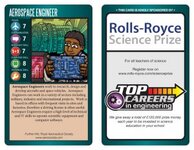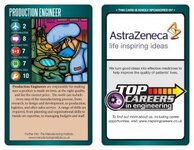K
Karen Gray
Guest
I know I harp on about my target audience a lot, but I wonder if anyone other than me gives consideration to this group of people? It's a MASSIVE chunk of the population and they are absolutely and shamefully overlooked.
I consider myself a former member of this group so I know how challenging the find it to get what they want out of a book and more often than not feel like they have to just stick to YA, because it is easier for them to follow the story. Yet often YA just doesn't hold the depth of atmosphere that Adults are looking for. This leads to an eventual loss of interest and lack of reading which only prolongs the problem.
This is why I decided to write my book in a YA style but for adults - not teens, though teens could probably read the first book just fine, the later books deal with a lot of issues best left to adults.
I have done a few things that would be, perhaps frowned upon in the writing of my first book, the intro and really for the challenged reader, the one they have to find easiest to understand. I have used colloquialism a fair whack of the time, I also at times use cliche and telling. All pretty big no nos as far as most books go, however, they are at specific points and are only used this often in book 1, far less in book 2, hardly at all in book 3 etc etc
In theory, the challenged reader is not only reading my books, they are learning to increase their literary skills as they go.
Why do some readers find reading challenging? It's a daunting question, because there are so many answers, but if you boil it right down to it's simplest form - challenged readers are challenged readers because of lack of understanding for how those individuals learn and as a result, poor tuition.
The way I like to describe the issue is that the average person has a linear mind. You look forward and work toward that goal. A to B in a straight line.
A challenged reader more often than not will be a sideways thinker. They cannot get from A to B by walking in a straight line. Some unseen force is in the way, so they have to find another way to get to the same goal. Now that could be by going around the side, or using a mirror, to see it from a different angle, or any number of things. But what is pretty uniform in sideways thinkers is that they are visuo-physical learners. They need to see physical cues to understand the text.
One way of doing this is using cliche. Cliches by definition are over used, EVERYONE knows what they mean, so they provide the sideways thinker with a momentary snapshot of a physical aspect of a situation that they already understand in the setting that they are trying to understand... Following me so far?
"Telling" at times is also needed if there is a really very complex scene, just to help give the challenged reader a few little obvious cues and help them keep with the pace of the story telling. Similarly dialogue tags can be quite important at times of complex scenes or when more than two people are speaking in a conversation.
The aim here is to make the text easy to understand from the outset, and gradually reduce the aids so that the challenged reader learns the skill of more complex reading as they progress through the series, without even realising that they are in fact learning, while at the same time keeping it readable for the general readership. Pretty big task that, but as a sideways thinker and previously challenged reader myself, how can I not try and make things easier for people who are struggling like I used to.
The thing people forget is that these people are often labeled as stupid or they are told that they have poor grades because they don't try hard enough. This is just not the case. Sideways thinkers are no less intelligent than anyone else, in fact at times they have proven more intelligent. It is the learning method and understanding mechanisms that differ and it is these that we should be addressing. There are countless other little tools and aids I use - like making sure the words are less likely to jumble for dyslexic and dyspraxic readers by making sure that there are not too many "swapable" letters too close together (b and d for example) but it would take ooooh so long to list them all, so I won't.
I would like to know other Litopian's thoughts on this issue. It's really important to me, though won't concern too many folk I'd assume, but then again, how many of us have actually taken a moment to think about it? I'll bet hardly any... until now xx
Thanks for listening folks
I consider myself a former member of this group so I know how challenging the find it to get what they want out of a book and more often than not feel like they have to just stick to YA, because it is easier for them to follow the story. Yet often YA just doesn't hold the depth of atmosphere that Adults are looking for. This leads to an eventual loss of interest and lack of reading which only prolongs the problem.
This is why I decided to write my book in a YA style but for adults - not teens, though teens could probably read the first book just fine, the later books deal with a lot of issues best left to adults.
I have done a few things that would be, perhaps frowned upon in the writing of my first book, the intro and really for the challenged reader, the one they have to find easiest to understand. I have used colloquialism a fair whack of the time, I also at times use cliche and telling. All pretty big no nos as far as most books go, however, they are at specific points and are only used this often in book 1, far less in book 2, hardly at all in book 3 etc etc
In theory, the challenged reader is not only reading my books, they are learning to increase their literary skills as they go.
Why do some readers find reading challenging? It's a daunting question, because there are so many answers, but if you boil it right down to it's simplest form - challenged readers are challenged readers because of lack of understanding for how those individuals learn and as a result, poor tuition.
The way I like to describe the issue is that the average person has a linear mind. You look forward and work toward that goal. A to B in a straight line.
A challenged reader more often than not will be a sideways thinker. They cannot get from A to B by walking in a straight line. Some unseen force is in the way, so they have to find another way to get to the same goal. Now that could be by going around the side, or using a mirror, to see it from a different angle, or any number of things. But what is pretty uniform in sideways thinkers is that they are visuo-physical learners. They need to see physical cues to understand the text.
One way of doing this is using cliche. Cliches by definition are over used, EVERYONE knows what they mean, so they provide the sideways thinker with a momentary snapshot of a physical aspect of a situation that they already understand in the setting that they are trying to understand... Following me so far?
"Telling" at times is also needed if there is a really very complex scene, just to help give the challenged reader a few little obvious cues and help them keep with the pace of the story telling. Similarly dialogue tags can be quite important at times of complex scenes or when more than two people are speaking in a conversation.
The aim here is to make the text easy to understand from the outset, and gradually reduce the aids so that the challenged reader learns the skill of more complex reading as they progress through the series, without even realising that they are in fact learning, while at the same time keeping it readable for the general readership. Pretty big task that, but as a sideways thinker and previously challenged reader myself, how can I not try and make things easier for people who are struggling like I used to.
The thing people forget is that these people are often labeled as stupid or they are told that they have poor grades because they don't try hard enough. This is just not the case. Sideways thinkers are no less intelligent than anyone else, in fact at times they have proven more intelligent. It is the learning method and understanding mechanisms that differ and it is these that we should be addressing. There are countless other little tools and aids I use - like making sure the words are less likely to jumble for dyslexic and dyspraxic readers by making sure that there are not too many "swapable" letters too close together (b and d for example) but it would take ooooh so long to list them all, so I won't.
I would like to know other Litopian's thoughts on this issue. It's really important to me, though won't concern too many folk I'd assume, but then again, how many of us have actually taken a moment to think about it? I'll bet hardly any... until now xx
Thanks for listening folks







